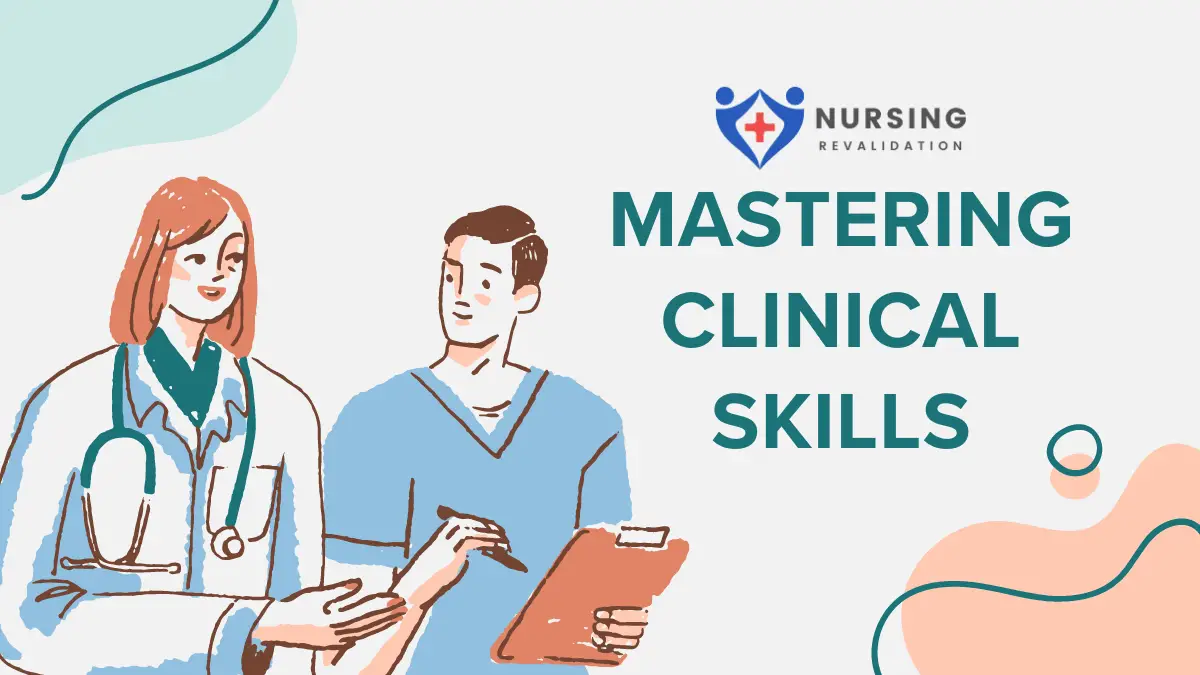As nursing students embark on their journey toward becoming competent healthcare professionals, mastering clinical skills is paramount. Clinical experiences offer invaluable opportunities to apply theoretical knowledge in real-world scenarios, fostering confidence and proficiency. However, navigating the clinical environment can be daunting without proper preparation and strategy. In this comprehensive guide, we delve into effective strategies for nursing students to excel in clinical practice, ensuring they maximize learning opportunities and optimize patient care.
Understanding the Clinical Environment
Overview of Clinical Rotations
Clinical rotations provide nursing students with hands-on experience in diverse healthcare settings, including hospitals, clinics, and community health centers. These rotations typically occur in conjunction with classroom instruction, allowing students to integrate theory with practice. Each clinical rotation offers unique learning objectives and challenges, requiring students to adapt and apply their knowledge accordingly.
Challenges Faced by Nursing Students
Navigating the clinical environment poses various challenges for nursing students, including time management, communication with patients and healthcare teams, and the acquisition of clinical skills. Additionally, students may encounter ethical dilemmas, cultural differences, and high-pressure situations that demand critical thinking and decision-making skills. Addressing these challenges requires a multifaceted approach encompassing preparation, resilience, and ongoing self-reflection.
Table: Common Clinical Skills for Nursing Students
| Clinical Skill | Description |
|---|---|
| Vital Signs Assessment | Measurement of essential physiological parameters, including temperature, pulse, respiration, and blood pressure. |
| Medication Administration | Safe and accurate administration of medications via various routes, adhering to medication orders and protocols. |
| Wound Care | Assessment, cleansing, and dressing of wounds to promote healing and prevent infection. |
| Patient Assessment | Comprehensive evaluation of a patient’s physical, psychological, and social status to inform care planning and interventions. |
| Intravenous Therapy | Insertion and maintenance of intravenous catheters, administration of fluids and medications, and monitoring for complications. |
Strategies for Success in Clinical Practice
1. Preparing for Clinical Rotations
Prioritize Preparation: Familiarize yourself with the clinical setting, including unit protocols, patient demographics, and common procedures. Review relevant textbooks, clinical guidelines, and online resources to enhance your understanding of clinical concepts and best practices.
Practice Self-Care: Maintain a healthy work-life balance to prevent burnout and enhance performance in clinical practice. Prioritize adequate sleep, nutrition, and exercise, and seek support from peers, mentors, and mental health professionals as needed.
2. Developing Clinical Skills
Active Participation: Actively engage in clinical activities, seeking opportunities to practice skills under the guidance of experienced nurses and clinical instructors. Demonstrate enthusiasm, initiative, and professionalism in your interactions with patients and healthcare team members.
Utilize Simulation: Take advantage of simulation labs to practice and refine clinical skills in a controlled environment. Simulations allow students to gain confidence, receive constructive feedback, and identify areas for improvement before interacting with real patients.
3. Effective Communication
Patient-Centered Care: Prioritize effective communication with patients, emphasizing empathy, active listening, and cultural sensitivity. Build rapport, establish trust, and involve patients in their care by soliciting their preferences, concerns, and goals.
Interprofessional Collaboration: Foster collaborative relationships with members of the healthcare team, including physicians, nurses, pharmacists, and allied health professionals. Communicate effectively, share relevant information, and contribute to interdisciplinary care planning to optimize patient outcomes.
4. Reflective Practice
Continuous Learning: Adopt a growth mindset and commit to lifelong learning and professional development. Reflect on your clinical experiences, identifying strengths, weaknesses, and areas for growth. Seek feedback from preceptors, peers, and instructors to enhance your clinical competence and confidence.
Evidence-Based Practice: Embrace evidence-based practice by critically evaluating research findings, clinical guidelines, and best practices. Incorporate current evidence into your clinical decision-making process, ensuring that your interventions are based on the best available evidence and patient preferences.
Conclusion
Mastering clinical skills is a cornerstone of nursing education and practice, requiring dedication, preparation, and ongoing self-reflection. By implementing the strategies outlined in this guide, nursing students can navigate the clinical environment with confidence, competence, and compassion. Remember, clinical practice is a journey of continuous learning and growth, and each patient encounter offers valuable opportunities for knowledge acquisition and skill development. Embrace the challenges, seek guidance when needed, and strive to provide exceptional care to every patient you encounter.


